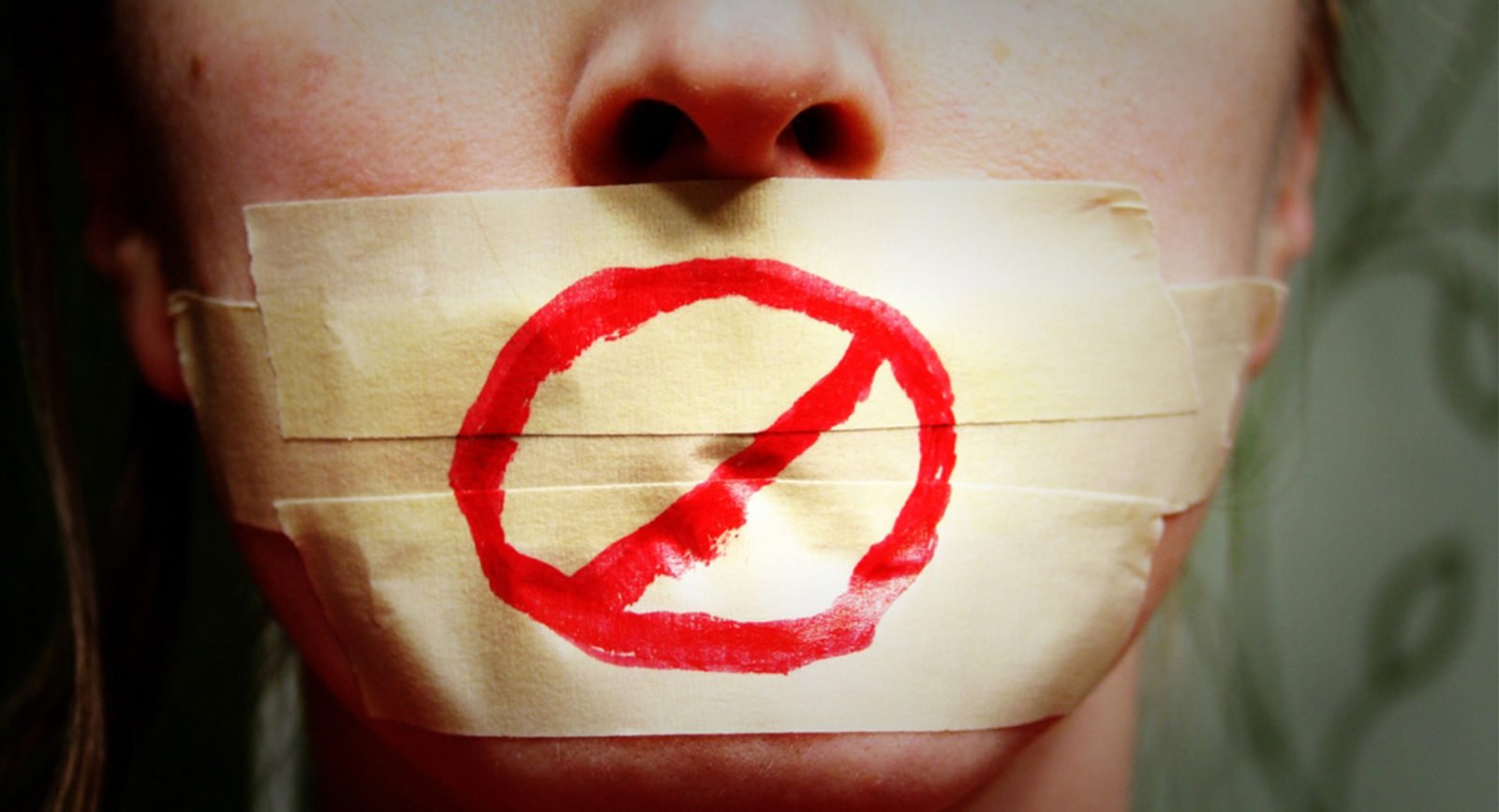In a barrage of recent dissents, including Coral Ridge Ministries Media, Inc. v. Southern Poverty Law Center published on Monday, Justice Clarence Thomas is pushing the Supreme Court to “revisit” and overturn precedent that has protected American citizens’ right to free speech since 1964.
The target is the “actual malice” standard first articulated in the Court’s NY Times v. Sullivan opinion. Although the Supreme Court declined to revisit the actual malice standard in this term, Thomas’s dissent in Coral Ridge highlights the looming threat to free speech posed by the conservative super-majority on the Court.
The latest free speech issue came before the Court on a Petition for Writ of Certiorari filed by Coral Ridge Ministries Media, a Florida non-profit Christian media company founded by a pastor and television broadcaster that produces a TV and radio program called “Truths That Transform.” Coral Ridge broadcasts its views that homosexual conduct is “lawless,” “an abomination,” “vile,” “profane,” and “shameful.”
The Southern Poverty Law Center (“SLPC”) took note of Coral Ridge’s broadcasts and activities and added Coral Ridge to a “Hate Map” on its website. The Hate Map published by the SLPC lists various organizations that it considers “hate groups” based on their beliefs and practices. Notably, SLPC is only one of only two US organizations that monitor intolerance and hate groups – the other being the Anti-Defamation League.
Coral Ridge filed a defamation lawsuit in Alabama against the SLPC, claiming that it was defamed by inclusion on the Hate Map.
The trial and intermediate appellate courts dismissed the defamation lawsuit. These courts based the dismissal on established precedent that holds that the term “hate group” has no single, commonly understood meaning and therefore cannot be provable as false, an essential element of a claim for defamation. The courts also dismissed the defamation claim pursuant to the protections offered to publishers by the First Amendment, particularly against defamation claims pursued by public figures – such as Coral Ridge.
Coral Ridge sought intervention by the Supreme Court to overturn the dismissal, and, in the process it sought to topple free speech protections recognized in this country since the 1964 NY Times v. Sullivan opinion. In Sullivan, the Court unanimously held that the protections of speech embedded in the First Amendment to the Constitution of the United States extends to attempts to repress expression through claims of defamation. Sullivan was a civil rights case. The case involved the publication of an advertisement in the New York Times that criticized the response of a Southern community to demonstrations led by Dr. Martin Luther King. A city commissioner in charge of the police department, claimed that the publication libeled him – even though his name appeared nowhere in the advertisement. The New York Times lost at a trial held in a courthouse in Alabama hostile to the paper, but it eventually prevailed on appeal to the Supreme Court, effectively expanding free speech protections under the Constitution.
In its opinion, the Sullivan Court established the actual malice standard that has offered significant substantive protections to anyone engaged in speech about public issues or about public figures. The actual malice standard requires any defamation plaintiff to show that the allegedly defamatory statement was made with knowledge that it was false or with reckless disregard of whether or not it was false. Legally speaking, the actual malice standard, as Thomas points out in his latest dissent, is an “almost impossible” one to satisfy.
Thomas’s eagerness to reverse long-established law protecting the right of free speech is best understood in context of the conservative super-majority’s opinion in Dobbs v. Jackson Women’s Health, where the Court overturned decades of precedent protecting bodily autonomy. As the dissent in that case highlighted: “The Court reverses course [on Roe] today for one reason and one reason only: because the composition of the Court has changed.”
As part of this new composition, Thomas would have compelled the Southern Poverty Law Center to defend itself at trial in the case, forcing one of two organizations that track extremists in the US into a costly, perhaps existential court battle. If Thomas had his way, content publishers would be far more vulnerable to defamation claims than they already are. Overturning Sullivan would mean that defamation claims pursued by public figures like Samuel J. Worthington, Jr., and Clarice Schillinger would have a far better chance of surviving dismissal than they do under the current landscape. The practical advantages afforded by wealth and access to the courts would be amplified, creating a class of public figures essentially insulated from any criticism. The barriers to citizen advocacy, already difficult enough, would be insurmountable in the face of constant threats to livelihood. This would also usher in an age of bankruptcies by media organizations – like Gawker – unable to withstand even one high-dollar defamation verdict. It is unsurprising that the Coral Ridge case attracted a plethora of right-wing organizations to submit amicus briefs attacking the Sullivan ruling. Anyone looking to entrench autocracy must first suppress speech.
Read: Defamation Lawsuits Can Be Weaponized Tools Of Censorship
Read: Jim Worthington And Clarice Schillinger Target Their Critics With Defamation Lawsuits
Read: Pennsylvanians Are In Desperate Need Of Protection From SLAPPs
In advocating to revisit and overrule Sullivan and the eliminate actual malice standard, Thomas is relying on the so-called “originalist” arguments used by the ultra-Conservative majority on the Supreme Court this term to devastating effect. In their first full term as a super-majority, the conservatives on the Court deprived women of bodily autonomy, eroded the line separating church and state, dismantled sensible gun laws, made police even less accountable for violations of the Constitution, restricted the government’s ability to address climate change, and now openly threaten many other rights that Americans still possess.
Thomas’s strategy for dismantling free speech protections follows his concurring opinion in Dobbs v. Jackson Women’s Health, where he notes that the Court’s same-sex intimacy, same-sex marriage, and contraception cases are “demonstrably erroneous” mandating that the Court exercise its “duty to ‘correct the error’ established in those precedents.” In Thomas’s dissent in Coral Ridge, he characterizes Sullivan “and the Court’s decisions extending it [as] policy-driven decisions masquerading as constitutional law,” adding further that “[t]hose decisions have ‘no relation to the text, history, or structure of the Constitution.’”
The brand of originalism buttressing the Court’s recent rulings cynically exploits the deep structural inequalities at the foundation of our country to dismantle decades of jurisprudence striving for liberty and equality. At its core, originalism rejects Dr. King’s maxim that the “arc of the moral universe is long, but it bends towards justice.” Thomas and the other five conservatives on the Court are using originalism in a lawless and unprincipled manner to break the moral arc and cast it into a black hole.
Thomas sees the Dobbs case as the beginning of the Court’s mission to overturn Constitutional rights, not the end. In the words of the dissent in Dobbs: “Either the mass of the majority’s opinion is hypocrisy, or additional constitutional rights are under threat. It is one or the other.”
It is chilling to see free speech on the list of the Court’s potential targets.





